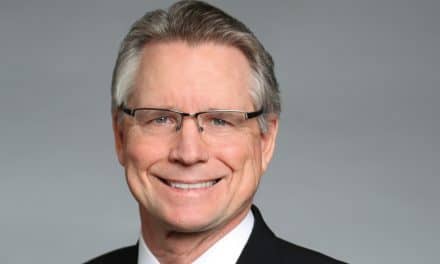Orthodontists are choosing to get board certified by the American Board of Orthodontics (ABO) at an earlier point in their career than ever before, according to the ABO. The shift is credited to support from graduate programs offering students preparatory exercises, instructional courses, and, in some cases, financial backing.
In 2007, the ABO implemented a new certification pathway to engage more new orthodontists to participate in the certification process. The revised criterion allows new orthodontists to sit for the boards earlier in their careers, and many graduate programs and residents are taking advantage of this opportunity, according to the ABO.
The ABO wants dental students who are considering becoming orthodontic specialists to make informed decisions. By soliciting orthodontic graduate programs across the country, the ABO has put together a survey of the strategies and practices many programs are offering to encourage students to take the boards.
“ABO certification establishes a format to allow graduates to objectively assess their clinical outcomes as well as provides a measuring gauge to assess future clinical outcomes as lifelong learners,” says Richard Kulbersh, DMD, MS, professor, chairman, and program director at the University of Detroit Michigan. “In addition, the ABO is the only orthodontic organization that has instituted a program for future recertification. And I believe that future certification and recertification will be a requirement for all specialties in the near future.”
At the Louisiana State University (LSU) Department of Orthodontics, a Pay It Forward Program was instituted in 2014 to decrease the financial burden on LSU graduates who want to become board certified. Through this program, the Dr J.M. Chadha Orthodontic Educational Foundation, which is supported by alumni donations, reimburses recent LSU graduates for the fees associated with the Clinical Examination, which are presently $1,875. “We only ask that they [the graduates] consider donating at least a like amount over their careers back to the foundation so that future graduates have the same opportunity,” says Hector Maldonado, DDS, clinical associate professor of orthodontics.
The Pay It Forward Program is also designed to streamline the reimbursement process. “Through the cooperation of the staff at the ABO, we even have an agreement where the ABO will bill the foundation for the exam fees automatically and not the registrant,” says Maldonado, who is the secretary-treasurer of the foundation.
Meanwhile, Jacksonville University (JU), Brooks Rehabilitation College of Healthcare Sciences, School of Orthodontics stresses the educational value of taking the board exam, and bolsters that value with financial help to give all residents the opportunity to take the exam.
Toward the end of the JU Orthodontics residency, the program offers financial and logistical support for all residents so they may finish at least six cases that meet the criteria of the ABO Initial Certification Examination. The program also absorbs the Written Exam registration fee for all 15 residents each year. All new JU ABO certified graduates are celebrated through a campus-wide press release and recognition on the school’s alumni social media outlets.
“From early on, ABO certification is emphasized to our residents,” says Mark Alarbi, DDS, MS, CAGS, diplomate of ABO, associate dean and program director. “Thanks to the meticulous and dedicated effort of faculty and graduating residents to preselect the cases, the consistent support and validation of quality of records, weekly treatment progress seminars, and end of year audits and oral exams, the residents at JU have enjoyed a tremendous success in the past five years in acquiring the status of ABO Diplomate through the initial certification process (ICE).”









